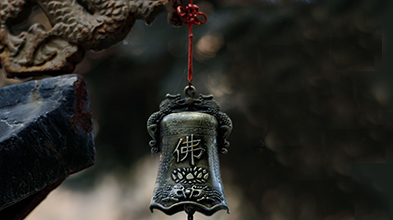One Day to a Lifetime
Fo Guang Shan International Translation Center
©All rights reserved.
Written by Venerable Master Hsing Yun
Recorded by Fabian Yu, Toronto Radiant Subchapter
- One Day to a Lifetime 5:26
One Day to a Lifetime
One Day to a Lifetime
With the advancements in technology, people today emphasize convenience and comfort in life. They become complacent and avoid hard work, and as a result, they often waste precious time. A Ming Dynasty poet, Tang Bohu, once wrote, "It is rare for someone to live seventy years. If you take away the years of childhood and old age, not much time is left in between. Then there are the hot and cold seasons as well as so many worries to take into account." In our life, after discounting time for sleep, sickness, old age, and childhood, how much is actually left for us to use? Therefore, we should make good use of our limited life span and plan well. We should start by carefully planning "one day to a lifetime," living each day as if it were a hundred years so that we can contribute fully to the world. The following are keys for planning "one day to a lifetime."
1. Plans for the day start in the morning. Each morning, we should plan what we have to complete for the day. When we have plans and goals, the day will not be wasted. Napoleon once said, "If I let a day go by without doing anything meaningful, I feel like I have committed theft." If we do not plan well for the day, not only will we feel stressed and unprepared in dealing with matters, but we also may forget or neglect what is important. We will end up wasting time just letting things go by. The poet Tao Yuanming cautioned, "The prime years of life will not come again, and there will not be another dawning of this day." If we do not plan well in the morning, we are simply "allowing our youthful hair to turn gray and feeling sorrow for nothing gained."
2. Plans for everything start with having a clear mind. Confucius said, "The wise are without delusions." Someone with wisdom can discern right from wrong and is clear from beginning to end about any matter. When we come across special cases or urgent matters regarding personnel at work, it is very important for us to understand the fundamental issue in order to find solutions for these problems. If we can truly appreciate the truth and the priorities of everything, we can make the right decision. We must be clear about every matter and have correct views in order to avoid making mistakes. Plans for everything, therefore, must start with having a clear mind.
3. Plans for a family start with peace and harmony. Members of the same family will inevitably be different. Respect, appreciation, and support for one another are ways to achieve peace and harmony. A popular saying reminds us, "A harmonious family prospers in everything." The peace and harmony of the family directly affects the spiritual and mental development of its members. It also influences human relationships with others and even social stability. Zhu xi, a Song Dynasty philosopher once said, "Etiquette is fundamental for preserving a family; harmony is fundamental for bringing prosperity to the family." Families are the roots of a society, while peace and harmony are the foundations of a family. Therefore, plans for a family must start with peace and harmony.
4. Plans for a lifetime start with diligence. The most important word in life is diligence. Isaac Newton once said, "If you want to acquire knowledge, food, and happiness, you must work hard because diligence is the cardinal rule for gaining everything." As long as we work hard, we can certainly excel in what we are learning and create a career of outstanding success. On the other hand, if we are lazy, we will lose what we have. Even though we may have great ambition, nothing can come to fruition without hard work. The Yan Family Precepts states, "One out of ten people in the world give up because of difficulty; nine out of ten people in the world give up because of laziness." Therefore, there is rarely insurmountable difficulty in the world, for as long as we are diligent, we can surely succeed. Our life should be constantly renewed, especially in making changes to our mind and body. We must know how to plan our lives well. We need to make plans for a day, a month, a year, and a lifetime, as well as be willing to make vows.
What's New?
NOVEMBER

Humble Table, Wise Fare
INSPIRATION
Recorded by Leann Moore
A moment of loving-kindness:
all things are good;
a moment of anger:
a thousand situations turn evil.

Dharma Instruments
Venerable Master Hsing Yun grants voices to the objects of daily monastic life to tell their stories in this collection of first-person narratives.

Sutras Chanting
The Medicine Buddha SutraMedicine Buddha, the Buddha of healing in Chinese Buddhism, is believed to cure all suffering (both physical and mental) of sentient beings. The Medicine Buddha Sutra is commonly chanted and recited in Buddhist monasteries, and the Medicine Buddha’s twelve great vows are widely praised.

Newsletter
What is happening at Hsingyun.org this month? Send us your email, and we will make sure you never miss a thing!





